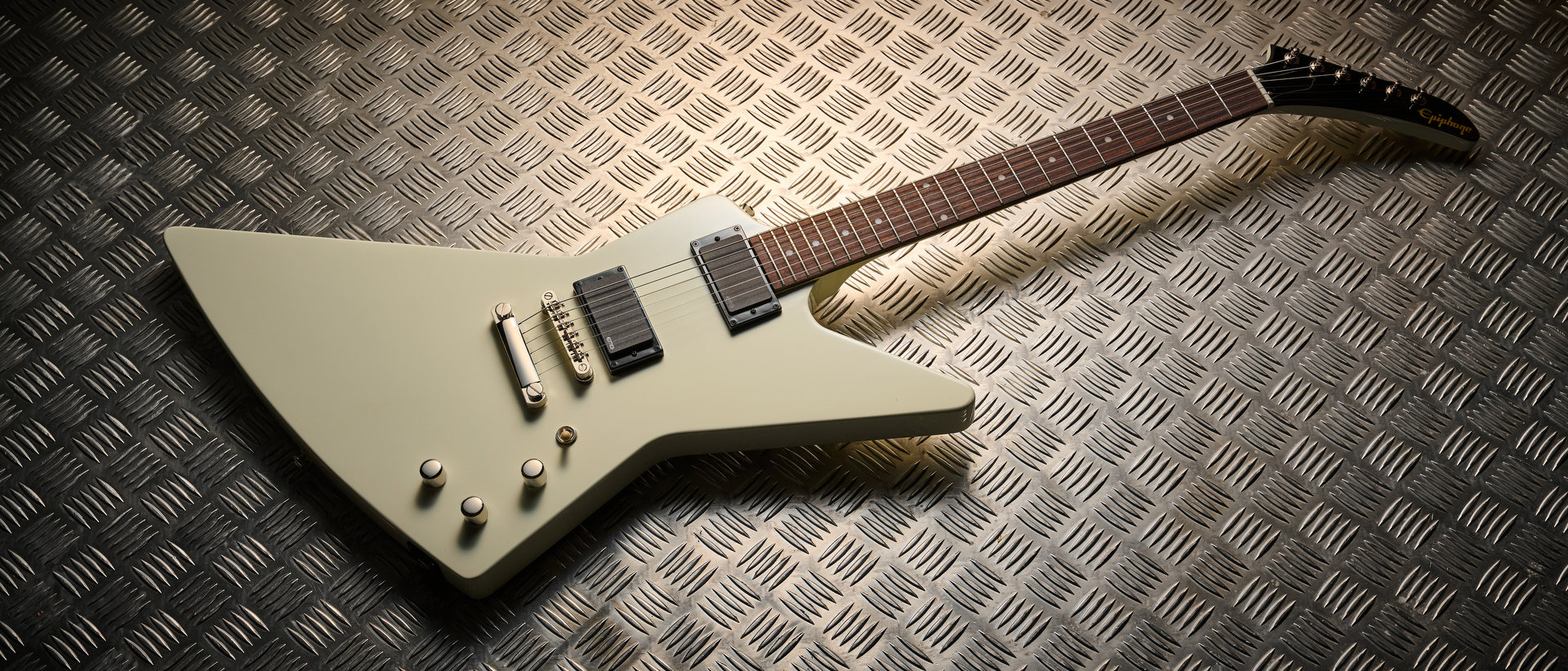Reach further on the fretboard and expand your playing possibilities with these guitar finger stretching exercises
Reduce pain and increase your vocabulary of chords and techniques with this Andy Summers and Allan Holdsworth-inspired lesson – just be sure to warm up first

The guitar fretboard is a very different beast to a piano keyboard. Whereas on a piano it’s fairly easy to reach an octave with one hand, this is all but impossible to do on a single guitar string.
You would have seen in my article on tapping how two hands can be used to play these large intervals; however, in this lesson I will show you some licks and phrases that develop your fretting-hand reach.
Before you start, it is important that you warm up before attempting to expand your finger stretch. Repetitive strain injuries are very real and something that you don’t want. So, if you experience any pain or discomfort, stop playing immediately and rest. If the symptoms persist, it’s advisable to speak to a medical professional for advice.
When attempting large stretches, the position of your guitar is crucial. Have you ever noticed how players such as Slash and Nuno Bettencourt, who wear their guitars low, have to adjust their playing position by bending at the knee or putting a foot on a monitor in order to lift their guitar up when playing some of their solos? This is because it’s very difficult to achieve wide stretches with a low-slung guitar. Your fretting-hand thumb position is equally important.
Whereas it is common practice to put your thumb over the top of the neck to support bends, in order to achieve a wider finger span your thumb will need to be placed further down the back of the neck.
When playing standing up, the length of your strap can be a compromise between looking cool and being able to play comfortably. If sitting down, adopting a classical guitar position with a footrest will help with your reach.
Opening out your fretting-hand fingers will lead to new ideas and creativity, while building upon your existing technique. It’s very easy to get used to playing those tried and tested licks, but increasing your reach, even slightly, can lead to new ideas and approaches.
All the latest guitar news, interviews, lessons, reviews, deals and more, direct to your inbox!
One factor that differentiates players is hand and finger size. There are some famous players with large hands who can tackle wide intervalic fretboard reaches better than others.
For example, Paul Gilbert and Steve Vai are able to dominate their fretboard due to the size of their hands. However, there are also some fine players whose hands are not so large, such as Angus Young and Randy Rhoads, guitar legends who never let their smaller stature get in the way of some fine guitar playing.
There are five examples and a study piece for you below. Take it easy, and remember to warm up and rest your hand if you experience any discomfort at all.
Examples
Example 1. Sus2 chords
These chords are synonymous with Police guitarist Andy Summers and require some pretty wide finger stretches. If you want to explore this style further, listen to Every Breath You Take and Message in a Bottle, both of which require your fingers to stretch across five frets.
Example 2. G and C shape chords
You may be familiar with the CAGED system for playing chord shapes. The G and C shapes using root inversion chords can be the trickiest to play, but are welcome changes to E and A shape barre chords. Use your first finger to act as a capo to barre the inner strings and the fourth finger for either the lowest or highest notes.
Example 3. Extended minor pentatonic lick
Licks such as this one are common with rock and metal players such as Dimebag Darrell and Eddie Van Halen. It can be tricky to reach the 19th fret, so make sure that you are suitably warmed up – such ideas are obviously even harder to play lower down on the wider frets!
Example 4. Wide intervals
This example is based around the interval of a 4th, outlining an Asus2 chord on the first and second strings before moving down the guitar neck in octaves. Ideas such as this can breathe new life into your playing.
Example 5. Wide-reach extended arpeggios
This final example is based around an E minor arpeggio with an added C note above the B. Adding an extra note to a standard three-note arpeggio can bring a different flavour to your phrases. This example ends with a three-octave E minor arpeggio.
Study Piece: Putting it all together
[Bars 1-8] Our first eight bars build upon example 5. Extended arpeggios are used throughout to outline each chord, adding extra colour with some fourth-finger stretches. Bar 4 has the widest stretch over the D chord.
To help achieve this, make sure that you are warmed up and that your guitar is in a comfortable and accessible position.
Bars 9-10 close the piece with intervallic legato licks followed by a final arpeggio, both implying an Asus2 chord. Enjoy stretching!
Simon is a graduate of the UK's Academy of Contemporary Music and The Guitar Institute, and holds a Masters degree in music. He teaches, examines and plays everything from rock to jazz.

